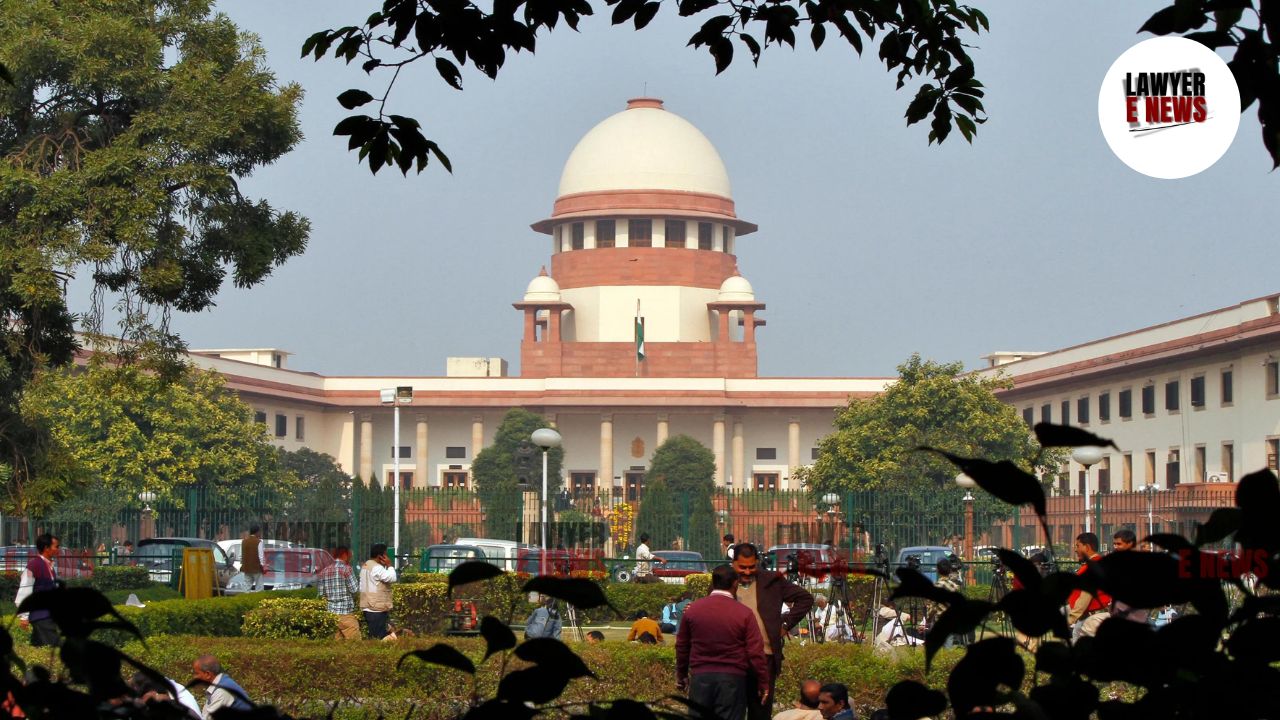-
by Admin
15 February 2026 2:36 AM



Supreme Court of India in Vijay Singh @ Vijay Kumar Sharma v. The State of Bihar (Criminal Appeal No. 1031 of 2015 and connected appeals), acquitted all seven accused in a 1985 murder and abduction case. The Court held that the prosecution failed to provide sufficient evidence to sustain the conviction, emphasizing that in cases based on circumstantial evidence, the chain of events must be complete and unbroken.
The case concerned the abduction and murder of Neelam on August 30, 1985, in Simaltalla, Bihar. Neelam, the wife of Ashok Kumar, was allegedly abducted from her house by seven accused persons, including Vijay Singh, and later found dead. The prosecution claimed that the motive for the crime was a property dispute concerning Neelam's late father's house, in which the accused sought to forcefully obtain possession.
The trial court convicted five accused (A-1 to A-5) for abduction and murder, while acquitting the remaining two (A-6 and A-7) for lack of evidence. However, the Patna High Court overturned the acquittal of A-6 and A-7 and convicted them, sentencing all seven accused to life imprisonment. The accused challenged this decision in the Supreme Court.
The Supreme Court had to determine whether the evidence on record was sufficient to support the convictions for abduction and murder. A key aspect of the case was the lack of direct evidence, as the prosecution relied heavily on circumstantial evidence.
The appellants argued that the High Court erred in reversing the trial court's acquittal of A-6 and A-7, and that the evidence presented by the prosecution was weak and inconsistent. They also contended that the High Court failed to follow the established legal standard for reversing acquittals, which requires the view taken by the trial court to be unsustainable, not merely an alternative interpretation.
The Supreme Court found several inconsistencies in the prosecution’s case. First, the Court noted the absence of key witnesses who were present at the scene but were not examined. Instead, the prosecution relied on testimonies of family members, raising concerns about bias and reliability.
The Court also observed that the prosecution failed to prove that Neelam was residing in the house from where she was allegedly abducted. The presence of makeup articles found in the house was deemed insufficient to establish her residence there, especially since other tenants occupied the house, and no other personal belongings of Neelam were found.
The testimonies of the witnesses were further scrutinized. The Court found contradictions in their accounts, particularly regarding their presence at the scene of the crime. The High Court had rejected the testimony of one key witness but relied on similarly situated witnesses without proper explanation, creating a gap in the chain of events.
The Supreme Court emphasized that the prosecution’s case, based largely on circumstantial evidence, did not meet the required standard of proof. The chain of evidence was incomplete, and no direct link between the accused and the murder was established. The Court held:
"In a case based on circumstantial evidence, the chain of evidence must be complete and must give out an inescapable conclusion of guilt. The prosecution’s case in this matter falls far short of that standard."
Moreover, the Court criticized the High Court for reversing the acquittal of A-6 and A-7 without sufficient grounds, noting that the High Court did not find any illegality or perversity in the trial court’s acquittal.
The Supreme Court acquitted all seven accused, setting aside the judgments of both the trial court and the High Court. The Court concluded that the prosecution had failed to prove the case beyond a reasonable doubt, and the circumstantial evidence presented was inadequate to support a conviction for abduction and murder.
Date of Decision: September 25, 2024
Vijay Singh @ Vijay Kumar Sharma v. The State of Bihar
